It's a new year and millions of Americans are making resolutions to adapt a more healthy lifestyle. Unfortunately, many will not follow through and stick to their goals. Perhaps this is because they have an all or nothing mentality, which should not be the case. Consider focusing on just one of these tips at a time. Every small change can make a big difference!
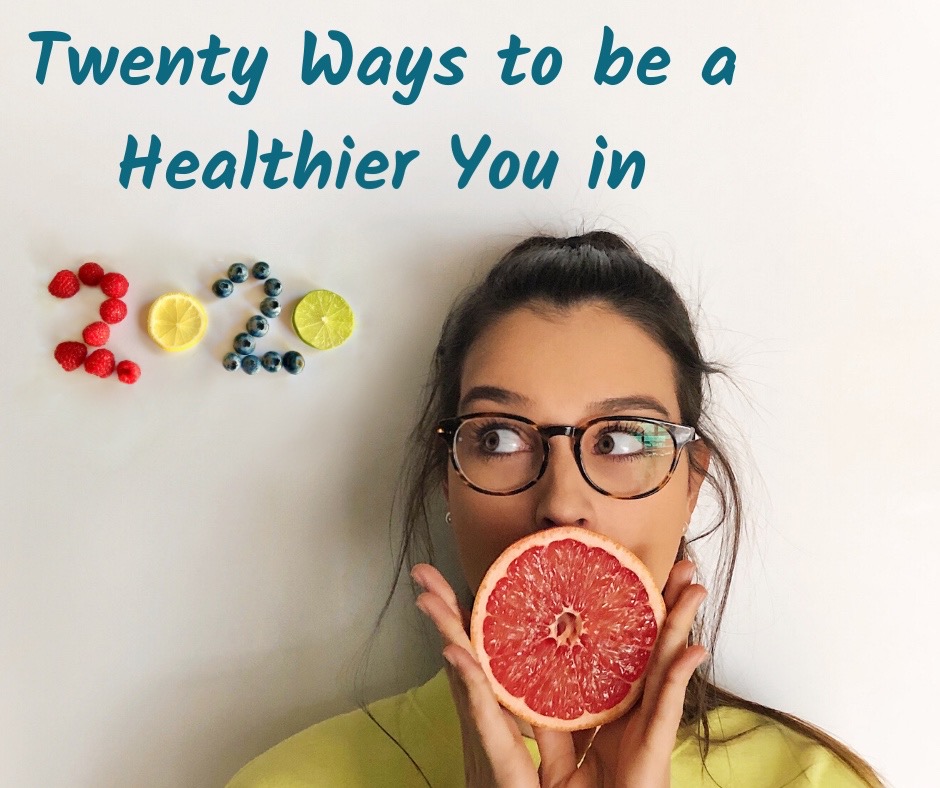
1. Consume a Plant Based Diet
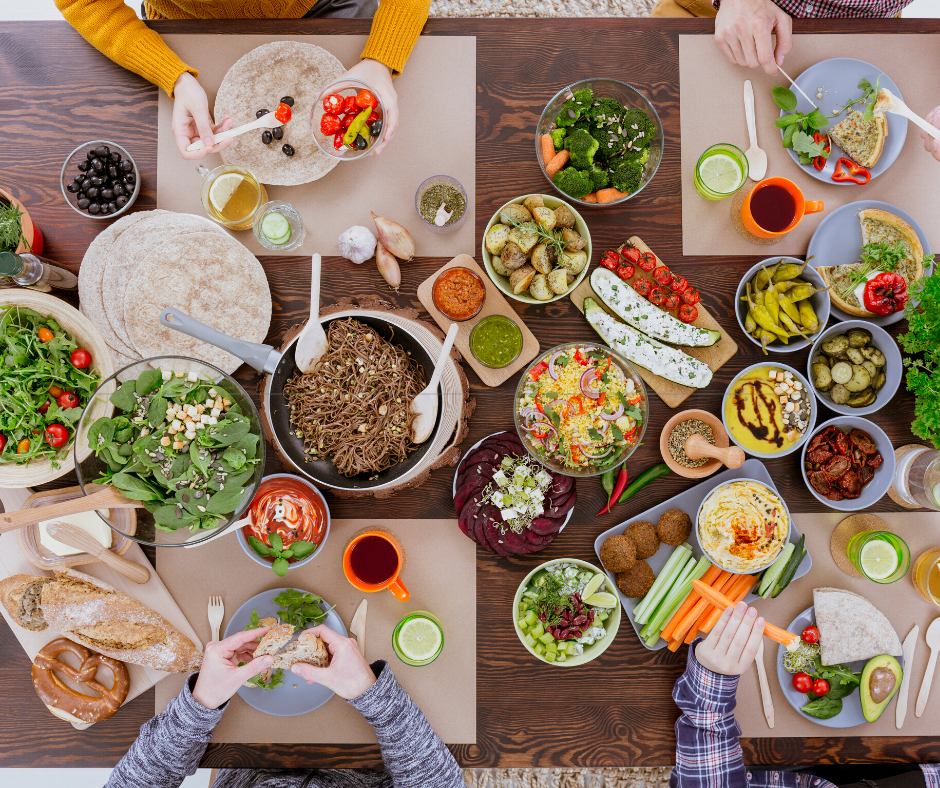
No, this doesn't mean that you have to be a vegetarian or vegan! Plant based eating focuses on eating MORE plant foods (fruits, vegetables, whole grains, nuts, seeds, beans, oils) and LESS animal products (meat and dairy). A plant based diet is rich in vitamins, minerals, antioxidants, and fiber and will help decrease your risk of obesity, diabetes, heart disease, inflammation, and cancer. Here are a few recipes to get you started:
- Stuffed Pepper Soup
- Strawberry Spinach Salad with Lime Vinaigrette
- Quinoa Salad with Cumin and Lemon
- Banana Nut Smoothie
2. Drink Green Tea
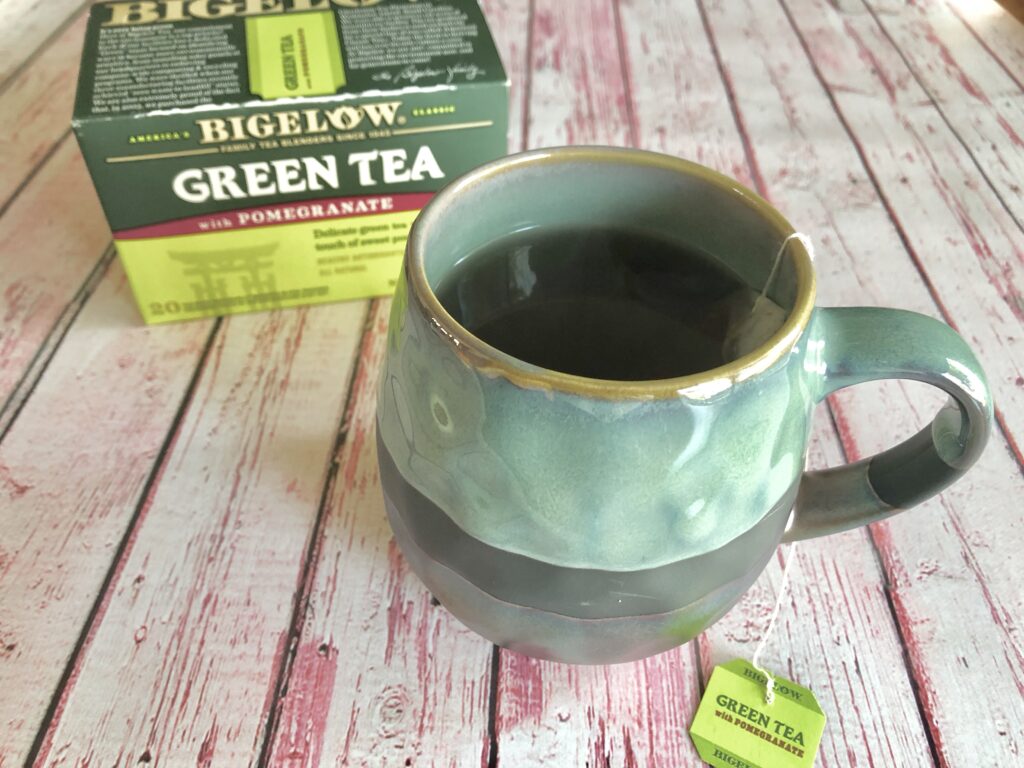
Green tea just may be the healthiest beverage on the planet! It is loaded with antioxidants called catechins that may lower the risk of numerous types of cancer (breast, ovarian, endometrial, prostate, and colorectal). It may lower blood pressure and cholesterol, and have a protective effect on the brain, reducing the risk of both Alzheimer's and Parkinson's. Not a fan of tea? You can still reap the benefits with matcha (finely milled green tea powder), by adding it to your next smoothie!
3. Meditate

Meditation is a technique in which you focus your mind on one thing, whether it be an object or your breathing. It allows you to be mentally aware and redirect your thoughts. Meditating just 5-10 minutes each day will leave you feeling calm and may help relieve anxiety, depression, and pain. It may even help you fall asleep. If you are interested in learning more about mindfulness and meditation I highly recommend the book Wherever You Go, You are There, by Jon Kabat-Zinn. It literally just may change your life!
4. Add Flaxseed
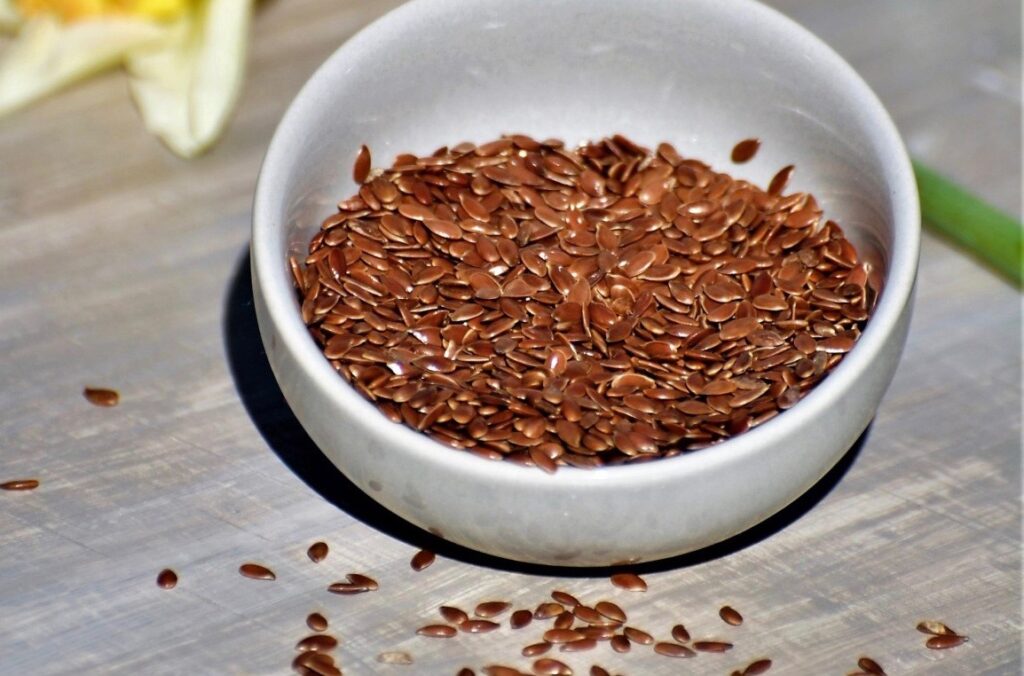
These tiny little seeds have lots to offer when it comes to nutrition! They are a great source of fiber, protein, omega 3 fatty acids (healthy fat vital to heart and brain health), and lignans (phytochemical that decreases cancer risk). You can purchase them whole, ground, or as an oil. I prefer ground flaxseed, which has all the nutrition benefits and can easily be added to muffins and smoothies. Check out my blog post Flax Facts, and you can even learn how to use flaxseed as an egg substitute!
5. Be Active

Physical activity is an essential component of a healthy lifestyle and it is important to remember that you don't have to join a gym to achieve the recommended 30 minutes of exercise each day. Wearing a Fitbit is a great way to track your progress. Increase your heart rate by going for a brisk walk on your lunch break, or after dinner. Get off that couch during your favorite TV show and do some squats, lunges, jumping jacks, or simply jog in place. Enjoy the great outdoors and spend the weekend hiking or biking!
6. Incorporate Beans into your Diet
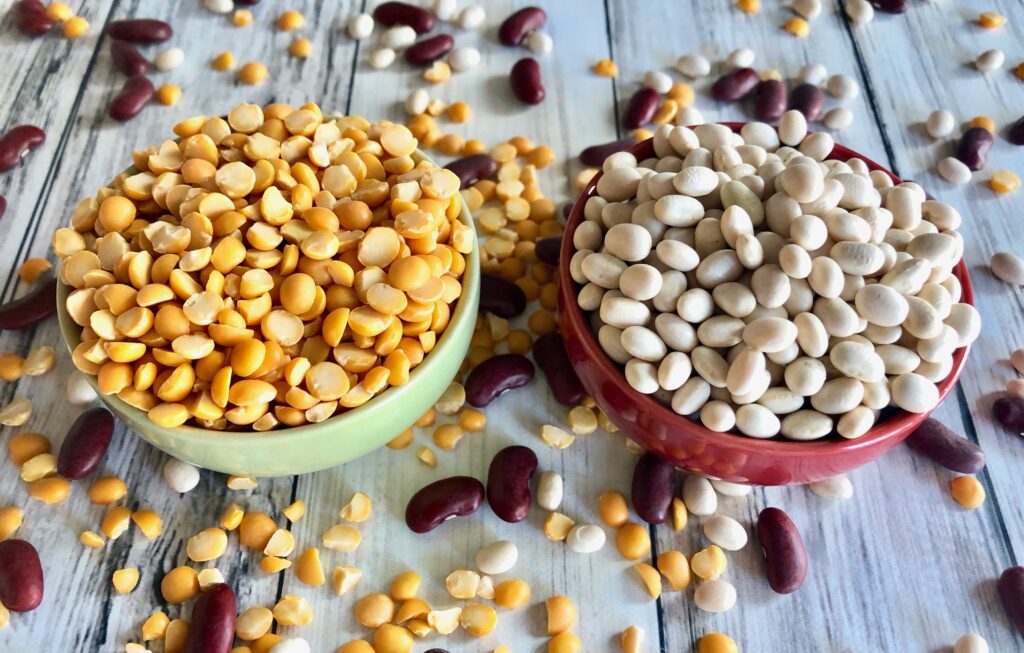
Possibly the world's healthiest foods, beans are loaded with protein, fiber, vitamins, and minerals! They are also rich in polyphenols, antioxidants that may help to decrease inflammation, cancer risk, and aging. Beans are an excellent source of soluble fiber, which can help decrease LDL (bad) cholesterol levels, and stabilize blood sugars. Don't forget to add a handful to your next soup or stew!
7. Choose Cruciferous Vegetables
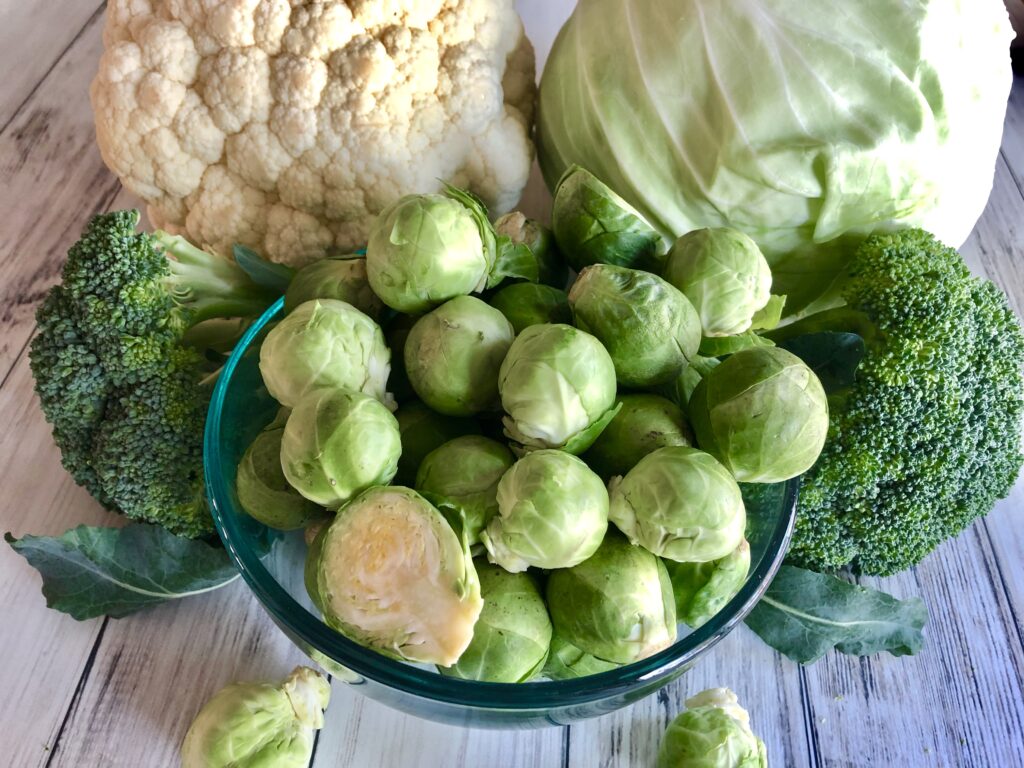
Swap out those starchy vegetables (corn, peas, potatoes) for some cruciferous ones. Brussel sprouts, broccoli, cauliflower, cabbage, turnip, collard greens, and kale all belong to the Cruciferae family of vegetables, are low in calories (25 per serving), and rich in folate, vitamins C, E, and K, and fiber. Glucosinolates gives them their unique flavor and smell and may help prevent cancer from forming and/or spreading.
8. Go Nuts
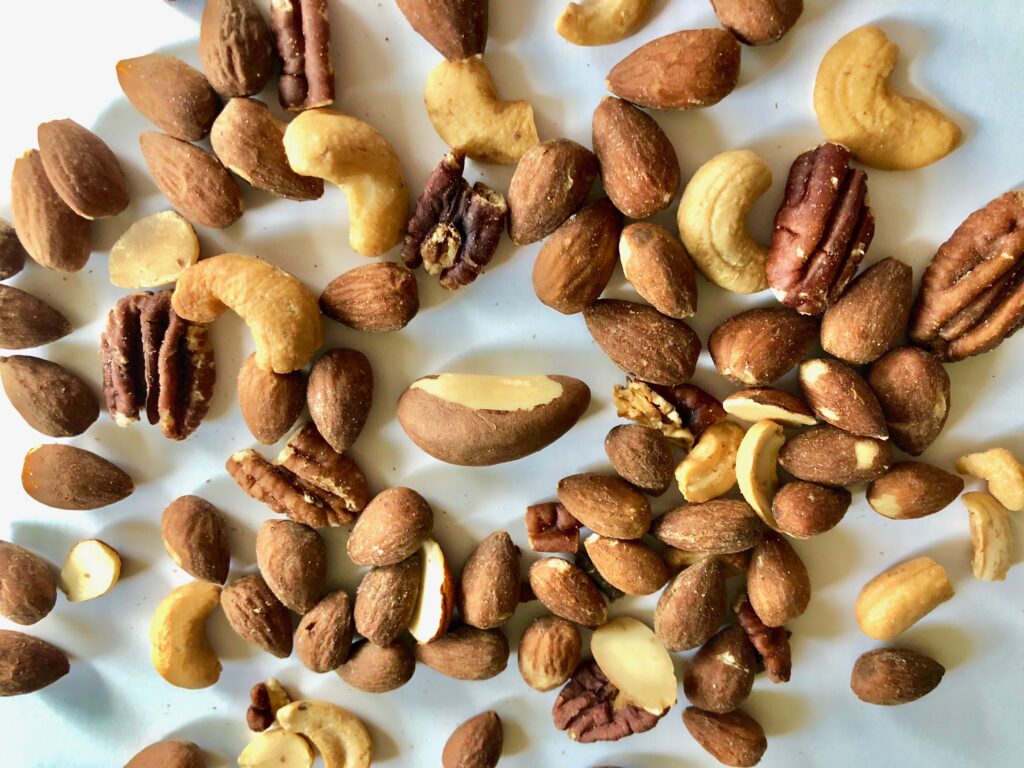
Nuts are an excellent source of protein, healthy fat, fiber, potassium, and magnesium. Consuming a small handful each day will help curb your hunger and may even lower your cholesterol. Did you know that you can take in over 100% of your daily recommended intake of selenium, a cancer fighting antioxidant, in just one Brazil nut? Yes, just one! More is not better though, so limit yourself to no more than a few each day.
9. Have Healthy Snacks on Hand
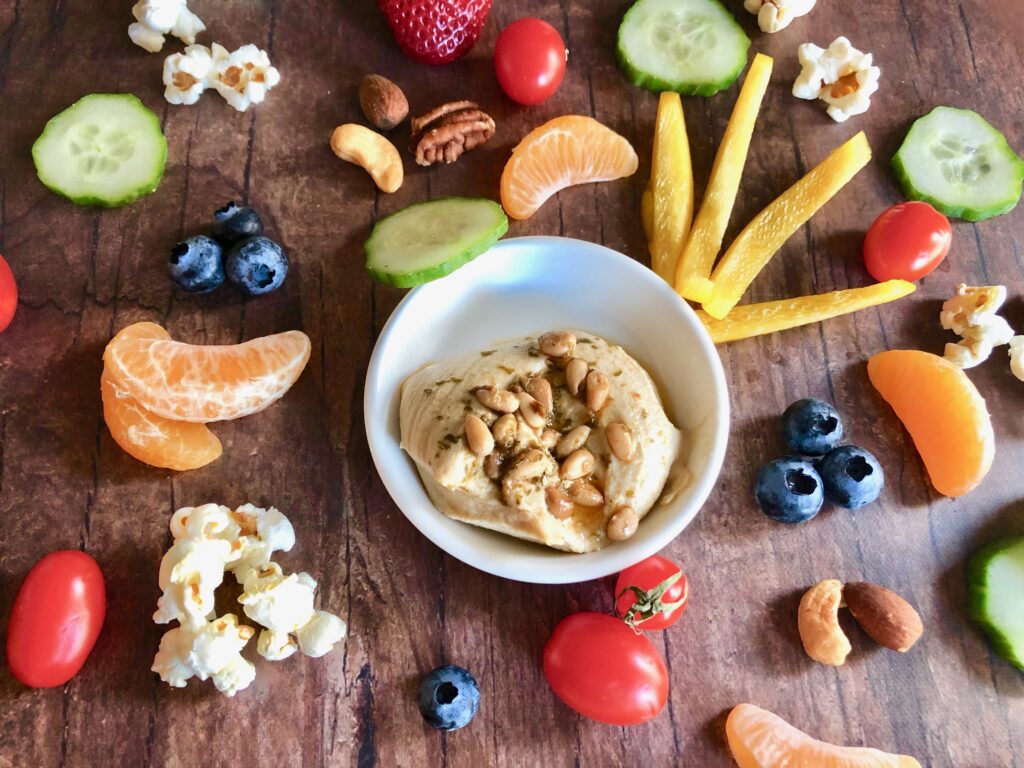
Snacking can be part of a healthy diet, so long as you're not grabbing pre-packaged goodies, such as chips, cakes, and cookies. When you are hungry and need a little something to keep you energized, it is important to have healthy snacks on hand. Choose fresh fruit, raw vegetables, hummus, nuts/seeds, Greek yogurt, oatmeal, or air popped popcorn. Protein and fiber are going to help fill you up and hold you over until your next meal. Oh, and did I mention the serving size of popcorn is 3 cups?!
10. Take a Yoga Class

Yoga has many health benefits and helps to strengthen the mind, body, and spirit. In speaking with Paula Bloodworth, a Certified Yoga Instructor who has been practicing in Maine for the past 18 years, I asked her what advise she had for those new to yoga. She responded, "Do not compare yourself to others. We are all on our own journey. I believe if you find a reliable partner to join you, someone who counts on you, encourages you, and you do the same, it's much easier to get started. I am convinced if everyone implemented yoga as a daily routine this world (mankind) would be much calmer and more peaceful place."
11. Benefit from Berries
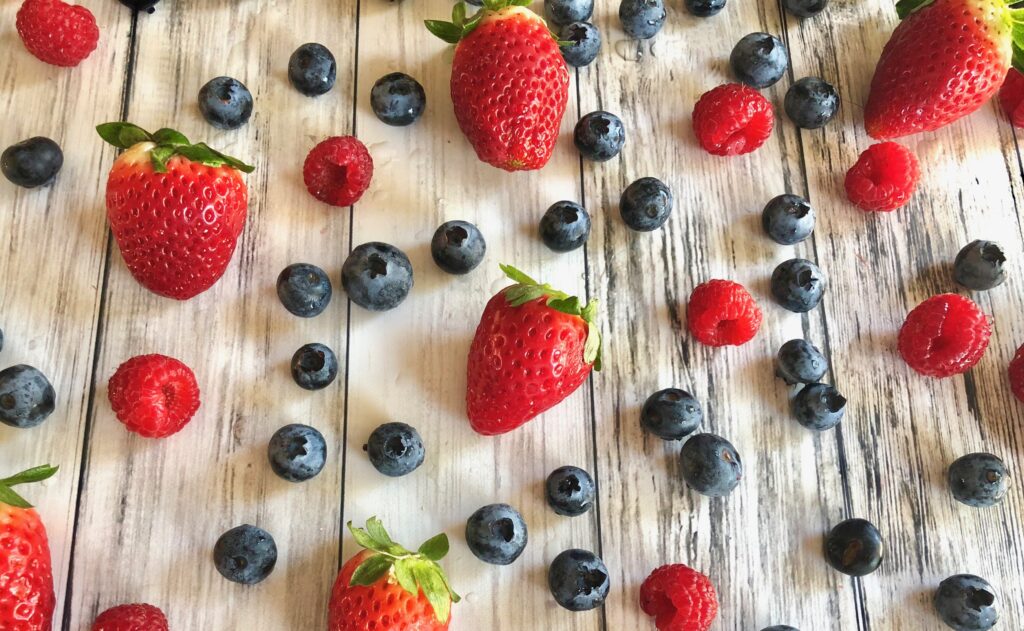
Berries are super nutritious and delicious! They are low in calories and high in antioxidants, which protect our bodies from cellular damage, thus lowering our risk of heart disease and cancer. Berries may also help slow cognitive decline that comes with aging. Here are some ways to incorporate them into your diet:
- add to cereal or pancakes
- sprinkle a handful on top of a salad
- mix with yogurt
- blend into a smoothie
- make a fruit salad
12. Plan Your Meals

When you are hungry and irritable, you are more apt to get your hands on whatever food is nearby, or might even find yourself heading into a fast food place. Planning your meals ahead of time will help save you money and time! Choose healthy recipes and write out a grocery list . This will prevent you from purchasing additional food items that may end up going to waste. Don't have time to cook? Consider using an Instant Pot (pressure cooker that speeds up the cooking time) or a Crock-Pot (allows your food to cook throughout the day when you are at work).
13. Make Smoothies
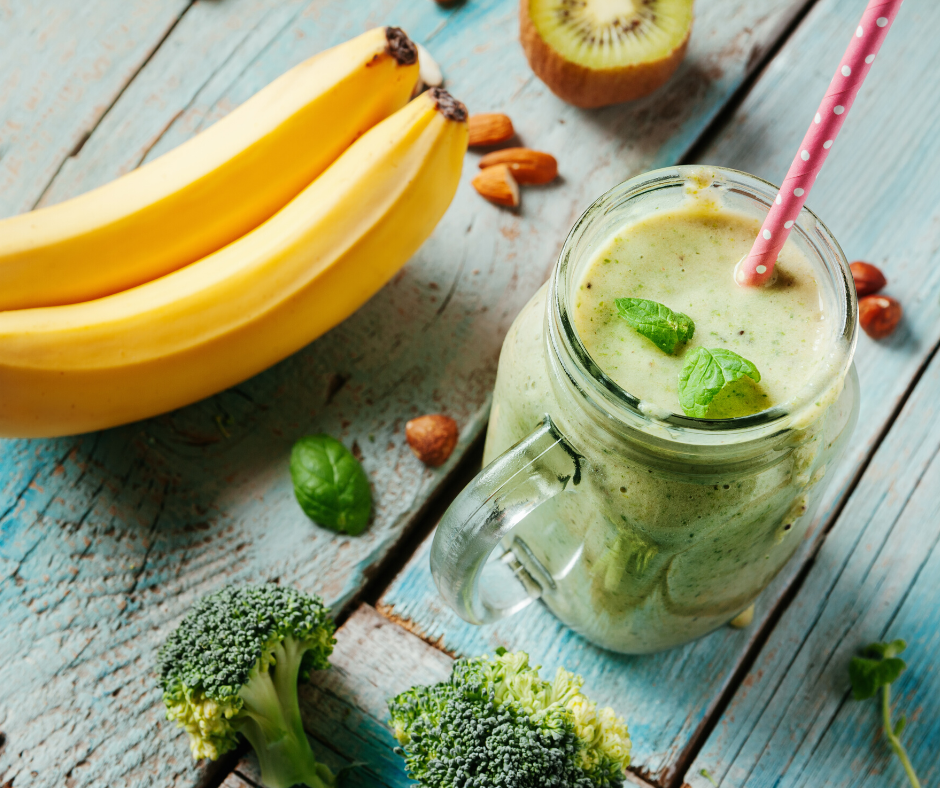
Are you consuming at least 5 servings of fruits and vegetables each day? Smoothies are an excellent way to get in those extra servings! Try experimenting with different ingredients. I recommend a cup of vegetables (spinach and avocado are my favorite), small frozen banana, ½ cup other frozen fruit, 1-2 tablespoon nut butter, 1 tablespoon of chia seed , hemp seed, or flax seed, and a cup of oat milk or coconut water. What is YOUR favorite combination? I'd love to hear. Leave a comment at the end of this post!
14. Discover Ancient Grains
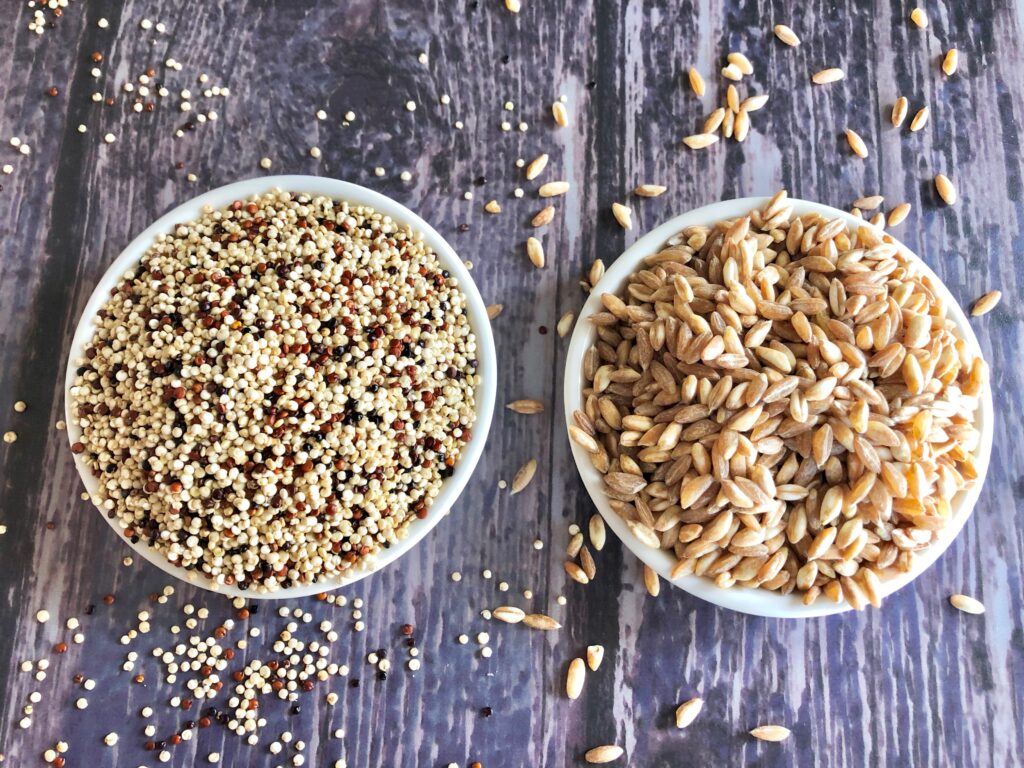
Ancient grains are plants that have been around for many centuries. Both quinoa, pronounced <keen-wah>, and farro have gained popularity and are quite versatile. Add them to soups, serve as a side dish, or make into a cold salad. According to Oldways Whole Grains Council, "many ancient grains thrive with lower levels of pesticides, fertilizers, and irrigation, making them an attractive choice to consumers who choose to shop with their carbon footprint in mind." They are also good sources of protein and fiber, which makes them a better choice that refined grains.
15. Rescue a Dog

Thinking of adopting a canine companion? Doing so could actually have a positive impact on your health. Just petting a dog can may help lower your blood pressure and relieve stress. Having a dog around may also decrease anxiety and depression. Walking your dog will keep you both active and healthy. There are many dogs out there looking for a good home. If you are in the NH area, be sure to check out my favorite rescue organization, Peace and Paws!
16. Spice Things Up
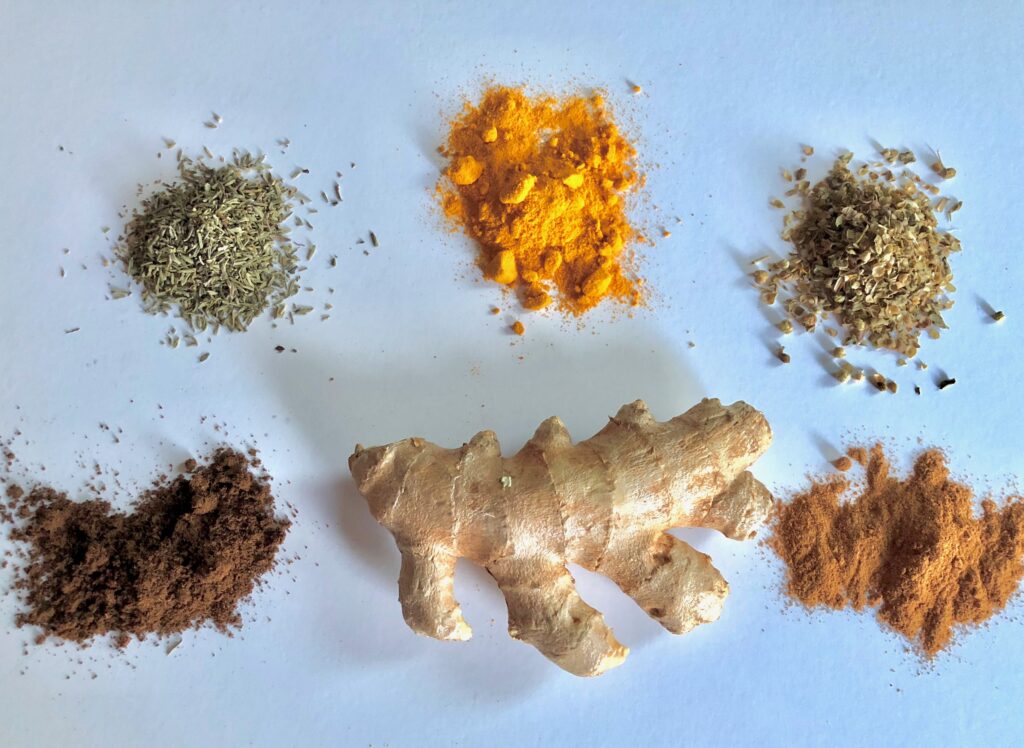
Spices don't just flavor our food, they are also full of phytochemicals that have many health benefits. Turmeric may help reduce inflammation and pain, cinnamon may lower cholesterol and control blood sugars, and ginger may help relieve nausea and stomach upset. Sage got it's name from the latin word salvere, which means "to save" and has been known to have healing properties since the middle ages. It was even used to help prevent the plague!
17. Eat More Fish
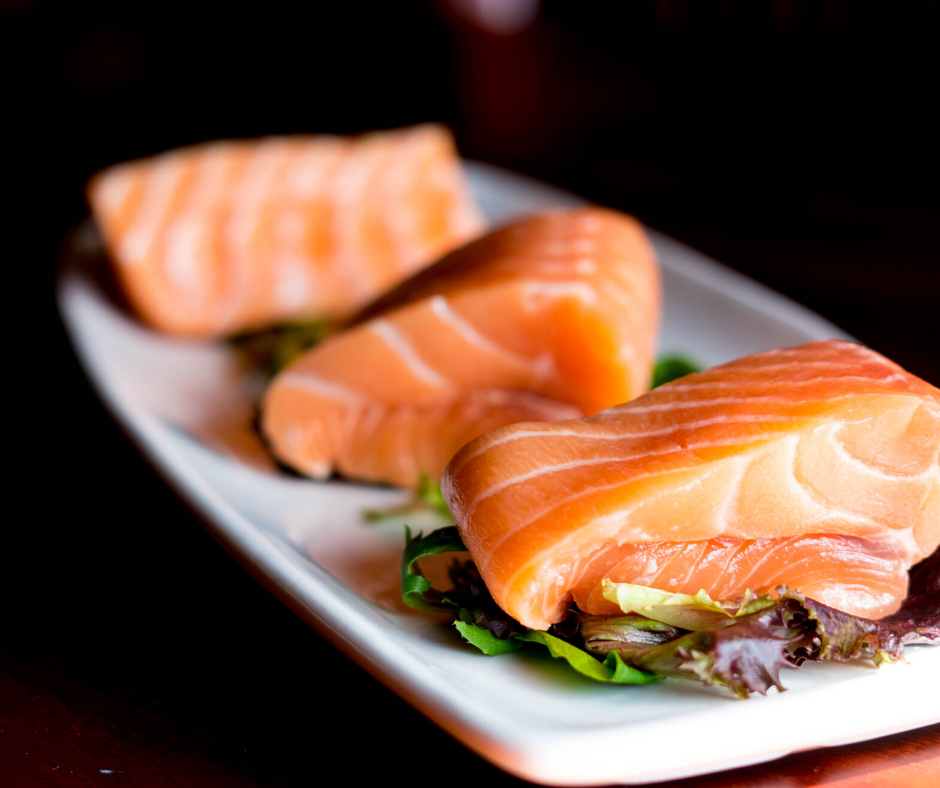
The American Heart Association recommends eating 2 servings of fish per week. Fatty fish such as salmon, tuna, herring, lake trout, sardines, and anchovies are preferred given their high omega -3 fatty acid content. Omega 3's can decrease your risk of heart disease, stroke, and cardiac arrest. Not a fan of fish? Speak to your health care provider about adding a fish oil supplement.
18. Practice Mindful Eating

Mindful eating is a technique in which you pay attention to the food that you are eating, focusing on each bite, and taking note of flavors, textures, and how you are feeling. Are you actually hungry or eating out of boredom or maybe secondary to stress? Is the food healthy? Are you eating cake in the break room at work just because it's there? There's nothing wrong with eating sweets now and then so long as you really enjoy them. Make your calories count and savor the flavor!
19. Be Happy

Scientific evidence reveals that being happy can have many health benefits. A positive attitude can help combat stress, boost your immune system, protect your heart, reduce pain, and may even lengthen your lifespan. Do things that bring you joy! Read a book, go to the beach, visit with a loved one, or volunteer at a soup kitchen. The possibilities are endless. For more inspiration, I think you will enjoy The Happiness Equation, by Neil Pasricha.
20. Get a Good Night's Sleep

Did you know that a good night's sleep not only leaves you feeling energized and well rested, but also decreases your risk of heart disease, high blood pressure, obesity, diabetes, and stroke? Most adults require 7-8 hours of sleep each night. Children and teenagers may need even more. Having some trouble getting to sleep? Here are some tips:
- avoid caffeine
- limit screen time before bed
- read a book
- listen to a white noise machine
- sleep with a weighted blanket
Foods and beverages that may help make you sleepy include: cherries, almonds, banana, turkey, and herbal tea.
What steps to being a healthier you, will you make first? Leave a comment below. I'd love to hear your thoughts!


Very interesting article. Will tackle a few and see what happens.
That’s great!
Great post. I used to have so many questions about healthy food. But after reading your post, I completely how to do it. Thank you so much.
So glad you found it helpful, Neora! 🙂